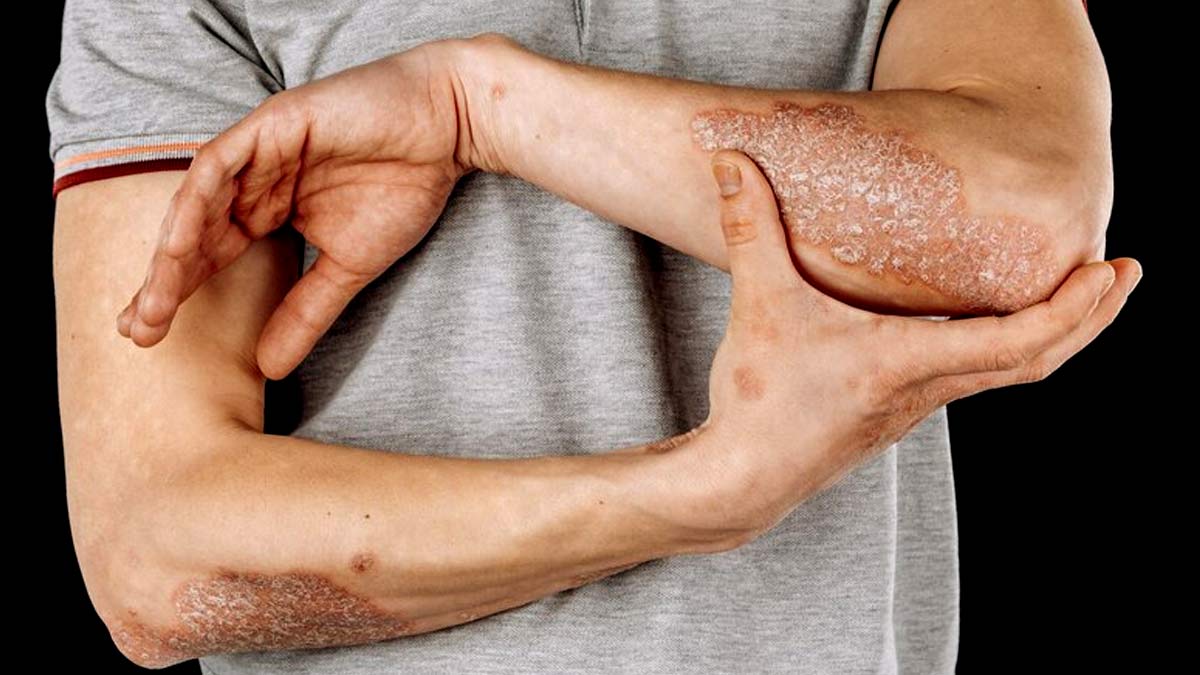
Psoriasis, a chronic skin condition that affects millions of people worldwide, can be influenced by a variety of factors that trigger or exacerbate its symptoms. Psoriasis causes redness, itchiness and scaly skin that may aggravate over time. World Psoriasis Day is observed on 29th October every year to spread awareness about this chronic skin inflammation. It is important to get the right treatment to reduce flare-ups. But what is more important is prevention. If you are aware of the triggers of this skin condition, you can escape flare ups with ease. In this article, we have listed down five common psoriasis triggers and how you can avert the risk.
Table of Content:-
5 Common Triggers of Psoriasis
Below are the five common triggers of psoriasis shared by Sanchi Tiwari, Nutritionist, Lord’s Mark Biotech that individuals should be aware of to better manage this condition.
1. Stress
Stress is a universal part of life, but it can significantly impact individuals with psoriasis. Scientific evidence suggests that heightened stress levels can lead to inflammatory responses in the body, causing psoriasis symptoms to worsen. Reduce stress by doing yoga, meditation and journaling that can boost your mental and emotional health.
Also Read: Home Remedies To Control Psoriasis Symptoms In Teenagers
2. Infections
According to Sanchi Tiwari, certain infections, particularly streptococcal infections, can be catalysts for psoriasis flare-ups. Awareness of infection risk and practising good hygiene are vital in preventing infections from worsening psoriasis symptoms. Early treatment of infections can also help manage psoriasis.

3. Weather Conditions
Cold and dry weather is known to trigger skin problems and aggravate psoriasis. The lack of humidity can lead to skin dryness, which is often linked to the worsening of psoriasis symptoms. Nutritionist Sanchi Tiwari suggests protective measures like the regular use of moisturisers and appropriate clothing can help mitigate the effects of adverse weather conditions. You must keep your skin clean and moisturised to survive harsh weather conditions.
4. Medications
Some medications can inadvertently trigger or worsen psoriasis in individuals, particularly those with a genetic predisposition. It's essential for those with psoriasis to consult with their healthcare providers about the potential side effects of medications and explore alternatives if necessary. Do not take any medication without doctor consultation.
Also Read: How Psoriasis Can Affect Your Liver & Heart, As Per Our Skin Specialist

5. Lifestyle Choices
Certain lifestyle habits like alcohol consumption and smoking have long been associated with an increased risk of developing psoriasis and making existing symptoms more severe. If you have psoriasis, you must reduce and stop smoking and alcohol. Recognizing these risk factors and making informed choices to limit or quit these habits can be integral in the management of psoriasis and overall health.
Conclusion
It is necessary that being aware of these common triggers of psoriasis is a vital step in effectively managing the condition. However, it's important to remember that psoriasis can be highly individual, and what triggers or exacerbates it may vary from person to person. By proactively addressing these triggers and collaborating with healthcare professionals, professionals can develop a personalised management plan that addresses their specific needs and triggers. Individuals with psoriasis can improve their quality of life and minimise the impact of this chronic skin condition.
Also watch this video
How we keep this article up to date:
We work with experts and keep a close eye on the latest in health and wellness. Whenever there is a new research or helpful information, we update our articles with accurate and useful advice.
Current Version